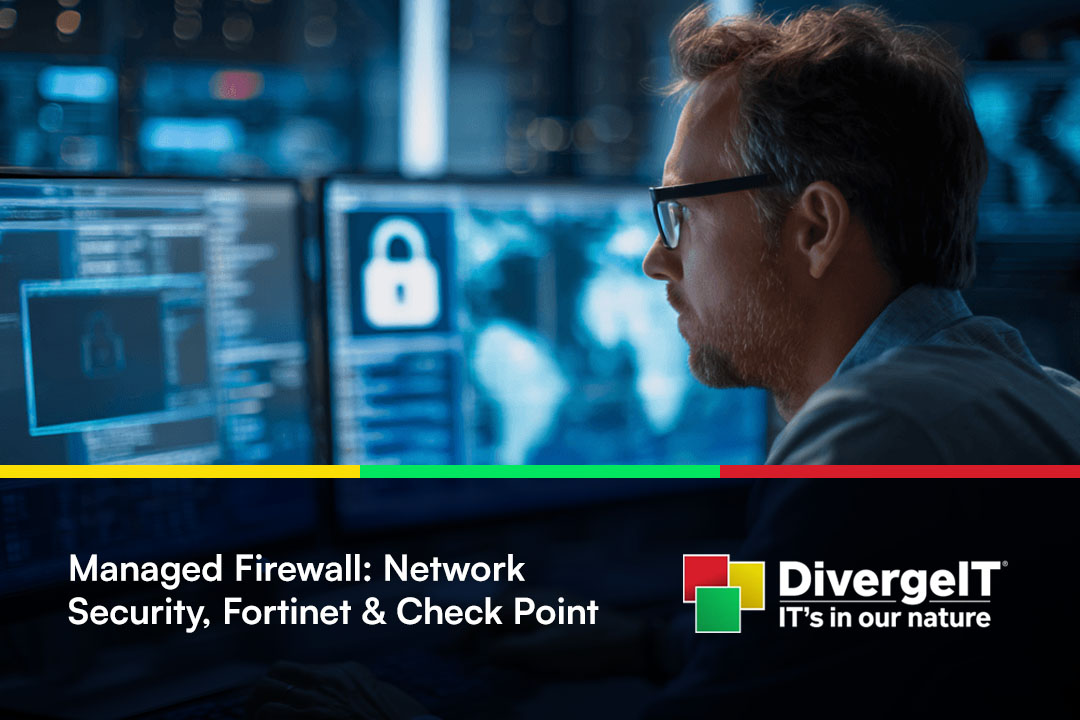July 11, 2025

A managed firewall is a critical part of any business's cybersecurity plan. It helps protect your network from unauthorized access, malware, and other threats. In this blog, we’ll explain what a managed firewall is, how it works, and why it’s important. We’ll also cover firewall management, common vulnerabilities, and how to patch security gaps effectively.
A managed firewall is a security service where a third-party provider monitors, maintains, and updates your firewall system. This service ensures that your firewall is always up to date and configured correctly to block threats. It’s especially useful for businesses that don’t have a full-time IT security team.
With a managed firewall, you get more than just a barrier between your network and the internet. You get expert support, regular updates, and 24/7 monitoring. This helps reduce the risk of downtime and data breaches, which can be costly and damaging to your reputation.

Firewall management involves setting up, monitoring, and updating your firewall to keep your network secure. Let’s break down the key parts of this process.
The first step in firewall management is setting rules that control what traffic is allowed in and out of your network. These rules are based on your business needs and security policies.
Continuous monitoring helps detect unusual activity. Alerts notify your team or provider when something suspicious happens, so they can act quickly.
Firewall logs record all network activity. Reviewing these logs helps identify patterns, detect threats, and improve your security setup.
Firewalls need regular updates to stay effective. These updates fix known issues and add new features to handle modern threats.
If something goes wrong, having a backup of your firewall configuration helps restore normal operations quickly. This is a key part of disaster recovery planning.
Many industries have rules about data protection. Managed firewall providers help ensure your firewall setup meets these requirements.
Firewalls often work with other security tools like antivirus software and intrusion detection systems. Integration makes your overall security stronger.
Here are some important benefits of using managed firewall services:

Not all firewalls are the same. Choosing the right managed firewall depends on your network size, industry, and risk level. Some businesses need advanced features like intrusion prevention, while others may focus on basic protection.
A good provider will assess your needs and recommend a solution that fits. They’ll also explain how the firewall works and what kind of support you’ll receive. This helps you make an informed decision and avoid overspending on features you don’t need.
There are many firewall solutions on the market. Let’s look at some of the most trusted options and what they offer.
Check Point firewalls are known for strong threat prevention and detailed reporting. They’re a good choice for businesses that need visibility into their network traffic.
Fortinet offers firewalls with built-in antivirus, web filtering, and intrusion prevention. Their FortiGate series is popular among mid-sized businesses.
Cisco firewalls are reliable and integrate well with other Cisco products. They offer strong protection and are often used in larger networks.
Palo Alto firewalls use machine learning to detect threats. They’re a good option for businesses looking for advanced, automated security.
SonicWall firewalls are affordable and easy to manage. They’re often used by small to medium-sized businesses.
Sophos firewalls combine network and endpoint protection. They’re ideal for businesses that want a unified security solution.
Juniper firewalls are known for high performance and scalability. They’re used in environments where speed and uptime are critical.

Security gaps are weaknesses in your network that attackers can exploit. Managed firewall services help close these gaps by providing continuous monitoring, expert configuration, and timely updates.
A managed firewall provider will regularly scan your network for vulnerabilities. They’ll also apply patches and adjust firewall rules as needed. This proactive approach reduces the chances of a successful attack.
Follow these tips to get the most out of your managed firewall:

Are you a business with 50–300 employees looking for a better way to protect your network? If you’re growing and need reliable security without hiring a full IT team, a managed firewall could be the right fit.
At DivergeIT, we help businesses like yours secure their networks with expert-managed firewall services. We handle everything from setup to monitoring, so you can focus on running your business. Contact us today to learn how we can help.
A firewall is a device or software that blocks unauthorized access to your network. A managed firewall includes expert support, monitoring, and updates. It’s ideal for businesses that don’t have in-house security staff. Managed firewall services help reduce vulnerability and ensure timely patch updates.
Firewall management involves setting rules, monitoring traffic, and updating systems. This helps prevent attacks and keeps your network safe. A managed firewall service ensures these tasks are done consistently. It also reduces the risk of human error and missed patches.
Check Point offers strong threat detection and detailed reporting. It’s a trusted option for businesses that need visibility and control. With managed firewall services, you get expert help configuring and maintaining Check Point systems, reducing vulnerability and improving patch response.
The right managed firewall depends on your network size, industry, and risk level. Look for a provider that understands your needs and offers scalable solutions. Managed firewall services help close security gaps and ensure your system is always up to date.
Fortinet firewalls offer built-in antivirus, web filtering, and intrusion prevention. They’re great for businesses that need all-in-one protection. With a managed firewall service, Fortinet systems are kept updated and monitored to reduce vulnerability and apply patches quickly.
As your business grows, so do your security risks. A managed firewall helps protect your expanding network without adding internal workload. It ensures consistent updates, closes security gaps, and reduces vulnerability through regular patch management and expert oversight.